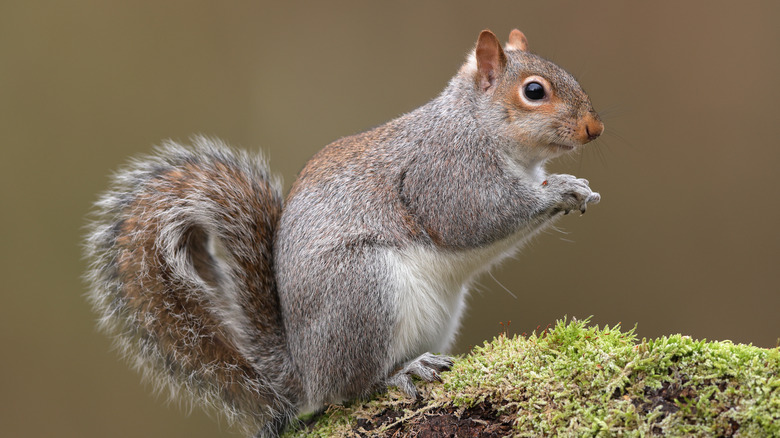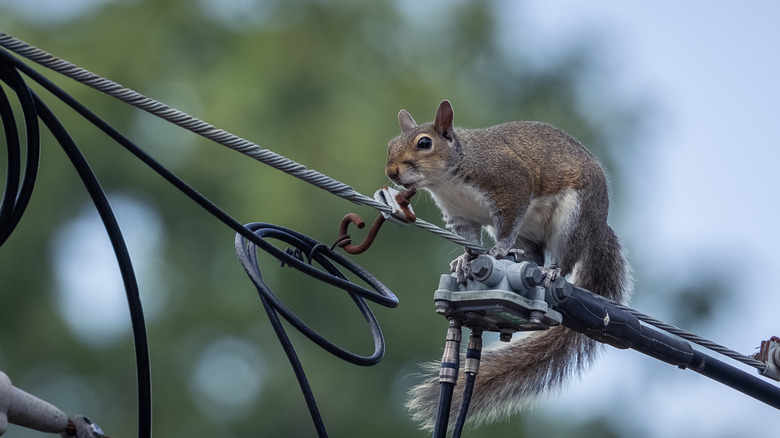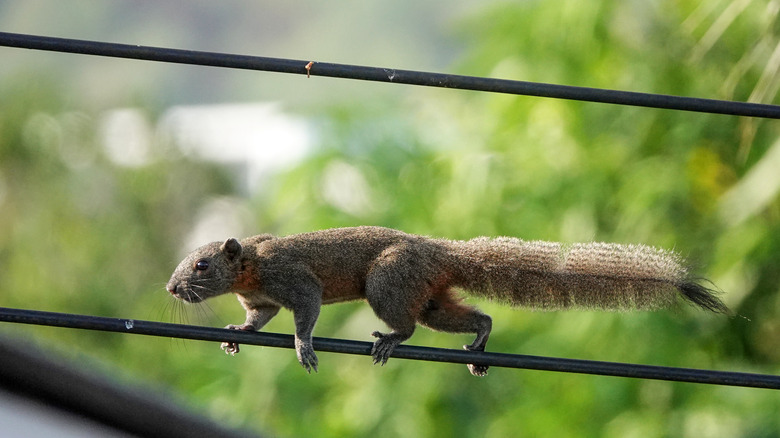An Unexpectedly High Percentage Of Power Outages Are Caused By Squirrels
It's a common feature of TV dramas: There's been a cyberattack by a foreign government, or a massive days-long hurricane, or simply some sort of glitch in the local power plant, and the electrical grid is down. Now, emergency room doctors and police officers and firefighters must work hard to keep their city safe while operating off emergency generator power.
The trope may be overdone in television, but the fragility of the electrical grid is actually a very real concern for national security. Government officials regularly prepare for potential cyberattacks (via Federal News Network), and initiatives are in place to ensure the electrical grid is updated and remains reliable, as Energy.gov notes. But, for all the government agencies focused on completing threat assessments about the grid, there is actually one threat to the nation's security supply that you might not anticipate: a small, bushy-tailed little rodent.
As one former national security official put it in 2015: "Frankly, the number one threat experienced to date by the U.S. electrical grid is squirrels," (via BestLife).
How squirrels affect power grids
Squirrels are commonly found across much of North America, with five major species making their homes across the continent, according to WorldAtlas. Like many other rodents, squirrels aren't picky about what they eat: They like to chomp down on foods ranging from nuts and seeds to fruits and veggies (via AZ Animals).
And, of course, they like to chew power lines. Though to humans, it may seem obvious that power lines aren't a good place to look for a quick meal, squirrels may find themselves near power lines for various reasons (via dataVoice International). For one, power lines can provide squirrels a quick and easy way to scurry between two trees, without having to climb all the way down to the ground. While they're on these lines, they might find themselves curious as to what is really going on with the cable, as KQED notes. Squirrels are inquisitive creatures and may try to chew through power lines in search of nesting material or food.
Other experts have pointed out that squirrels might also gnaw the lines to sharpen their teeth. Whatever the motivation of any particular animal, squirrels do a lot of damage to the U.S. electrical grid. While electrical power can be affected by various things, including ice, storms, and fallen power lines, it seems squirrels were still the chief cause of all power outages in 2020.
How to keep squirrels away from your power lines
Before you curse out your local squirrel populations, keep in mind that squirrels probably aren't any happier about this situation than you are. Most squirrels who chew through electrical wires get electrocuted in the process, according to dataVoice International, and a lunch of power cable is probably not the fancy last meal they would have hoped for. Luckily, there are a few steps you can take to help protect your house and your local squirrels.
One potential solution is to protect your power lines with something more durable than rubber. Surrounding your lines with something squirrels can't chew through, like heavy gauge sheet metal, can help protect your home against a power outage, according to Prairie Electric. Some companies even sell specific kits to protect your power lines and power poles from squirrels, according to Critter Guard. It's also important to use a metal screen near where your power lines connect to your house, to ensure squirrels can't wriggle inside your home and gnaw on the wires there, Prairie Electric notes.


